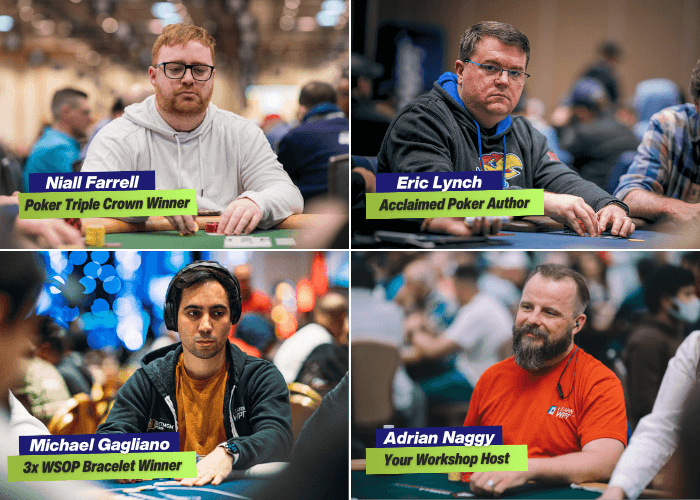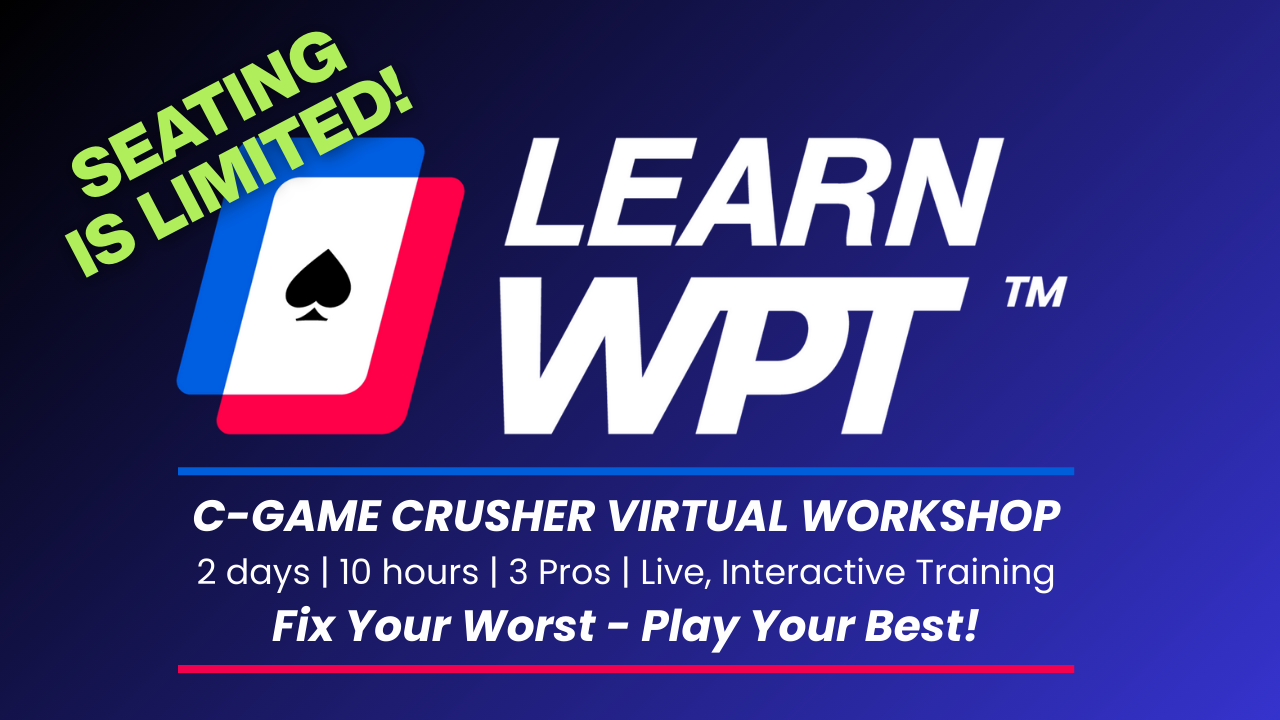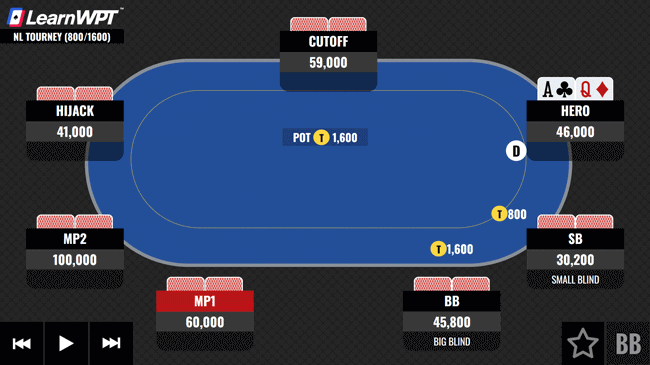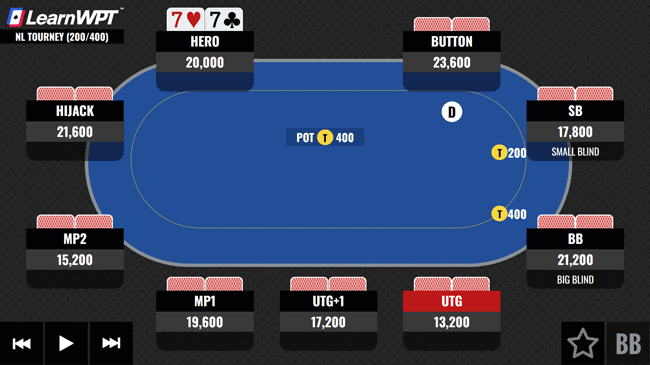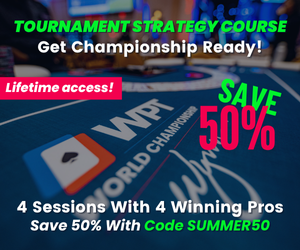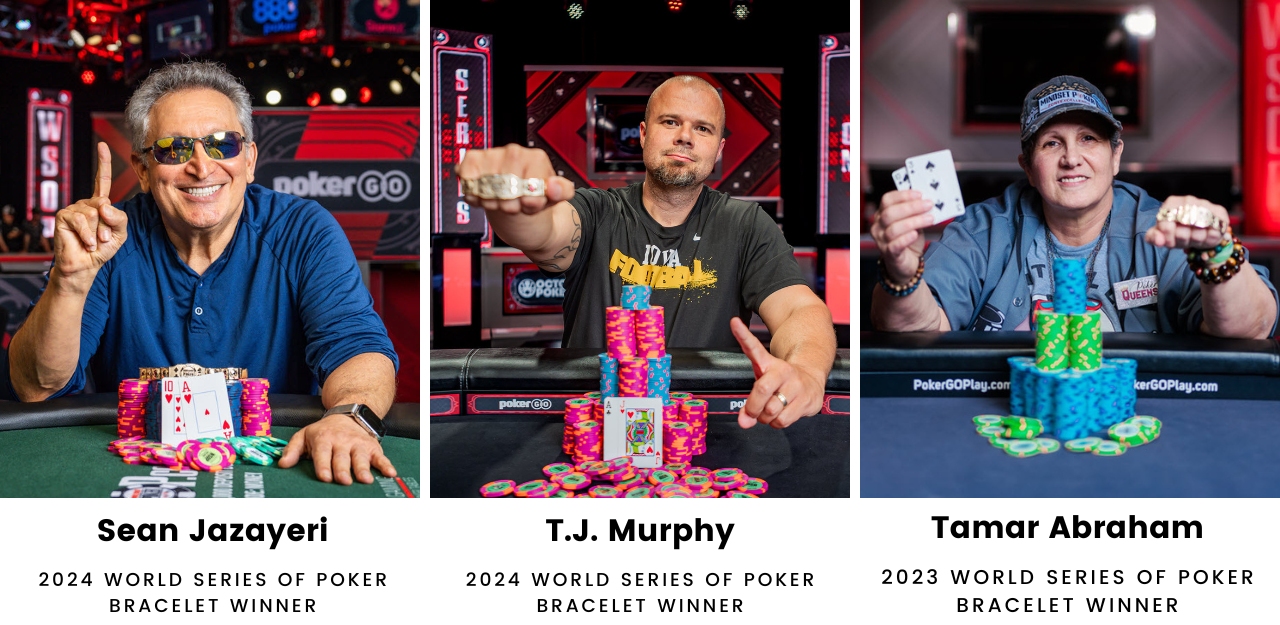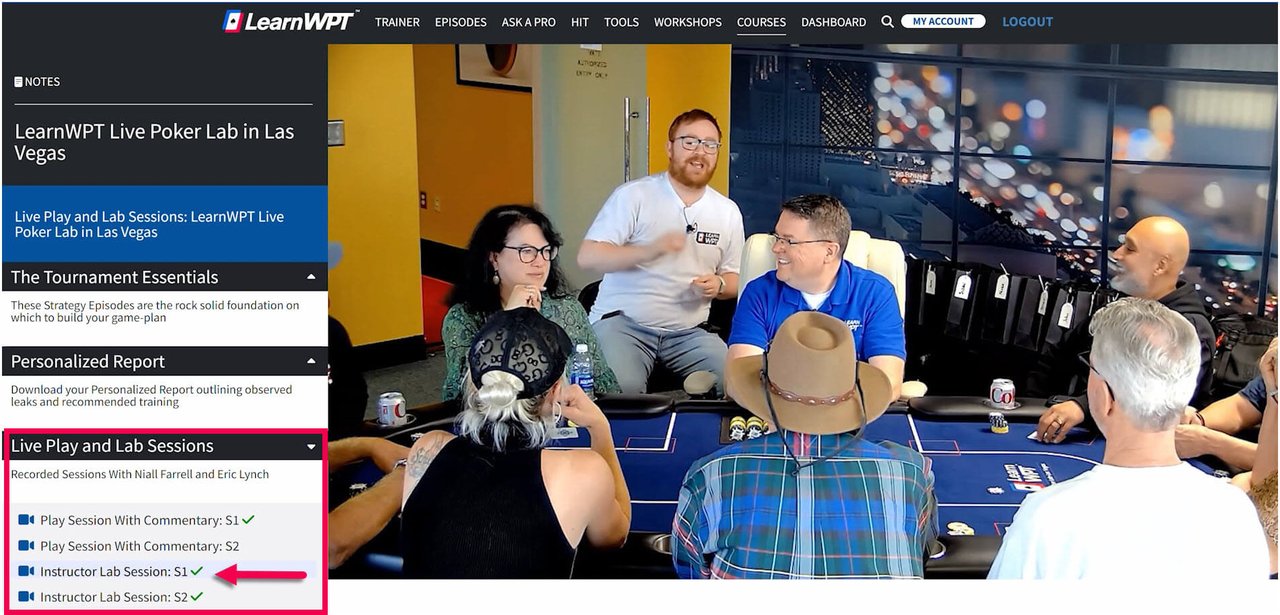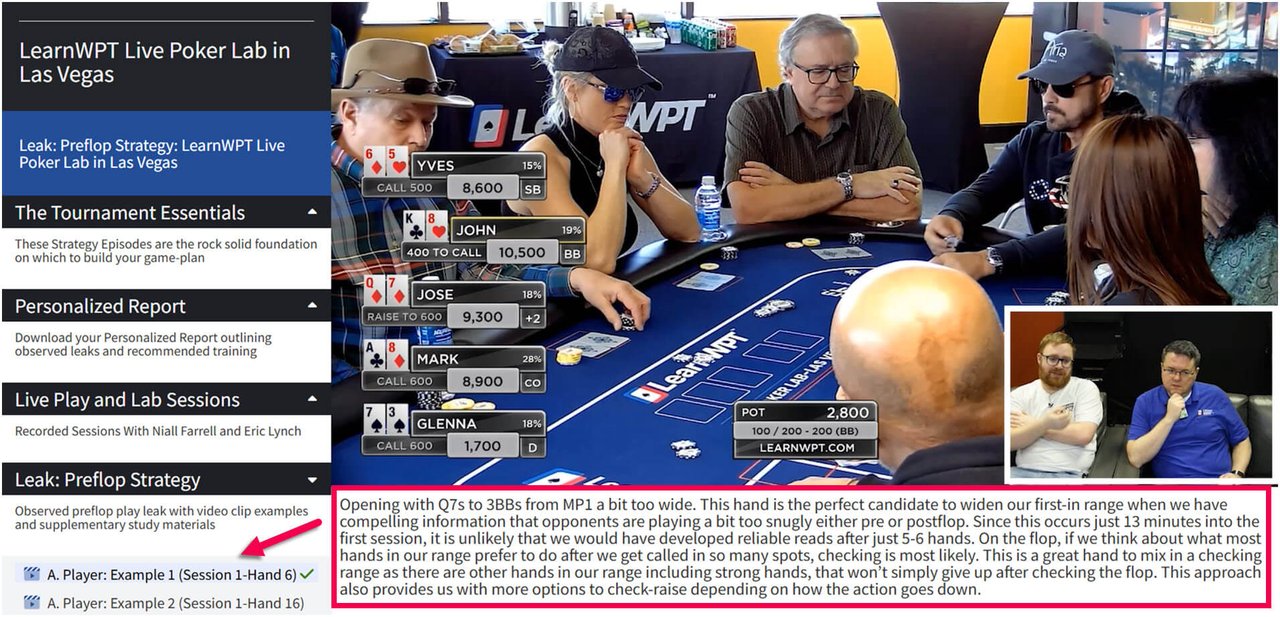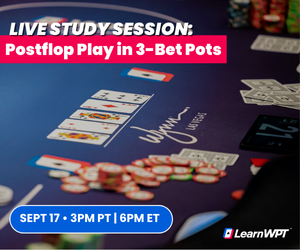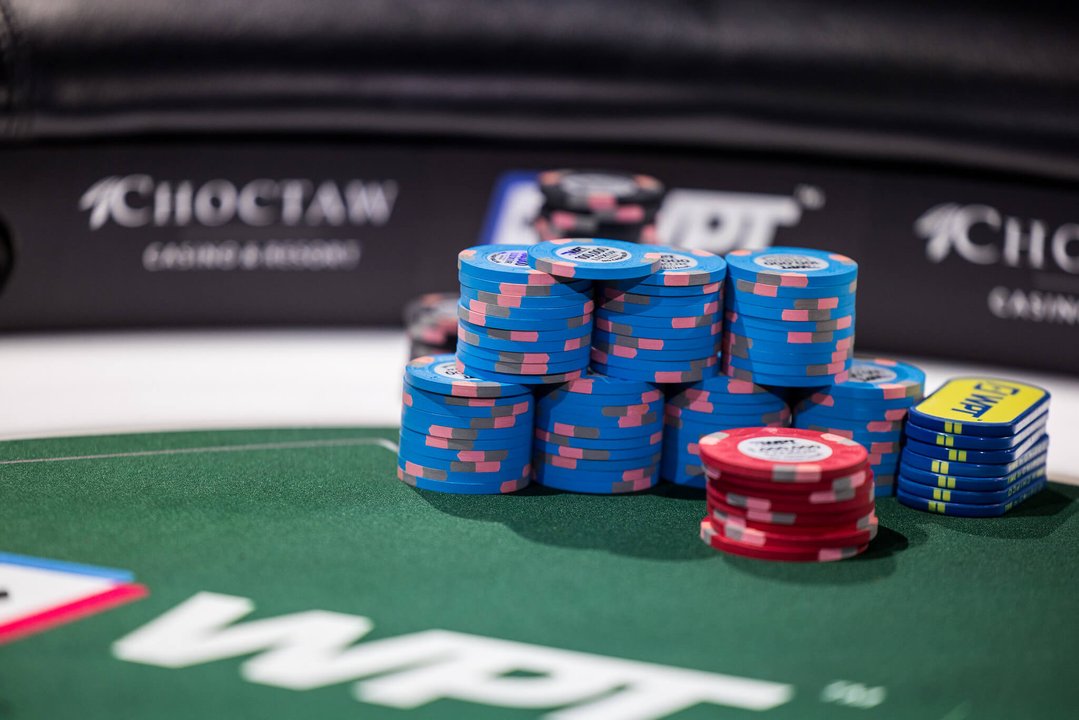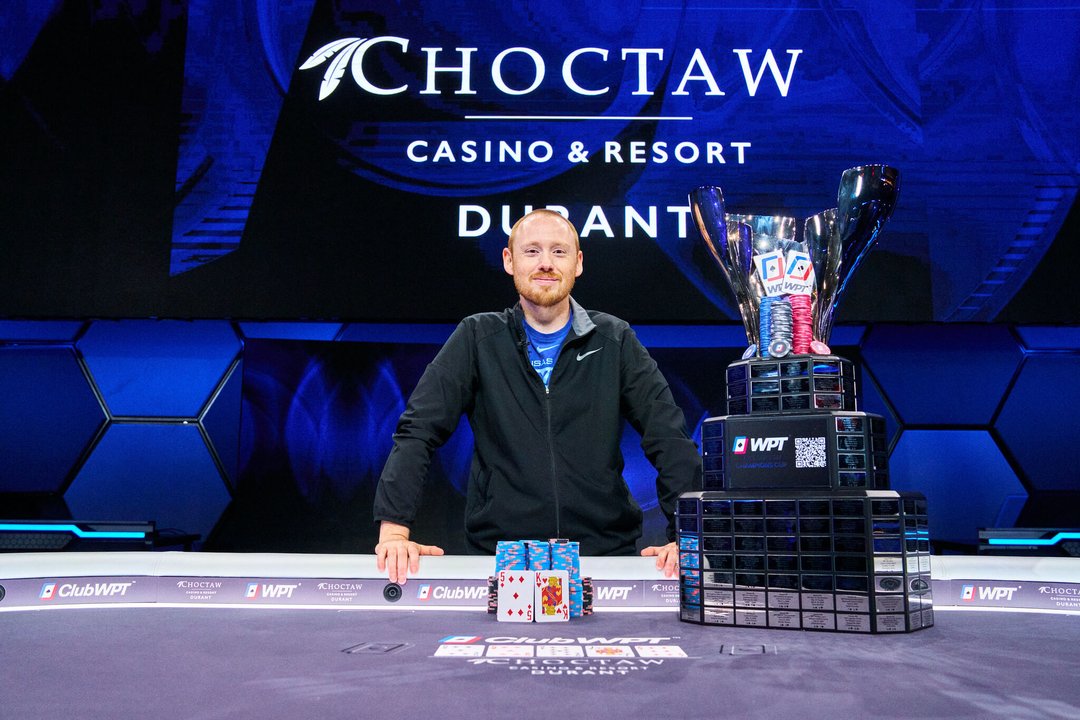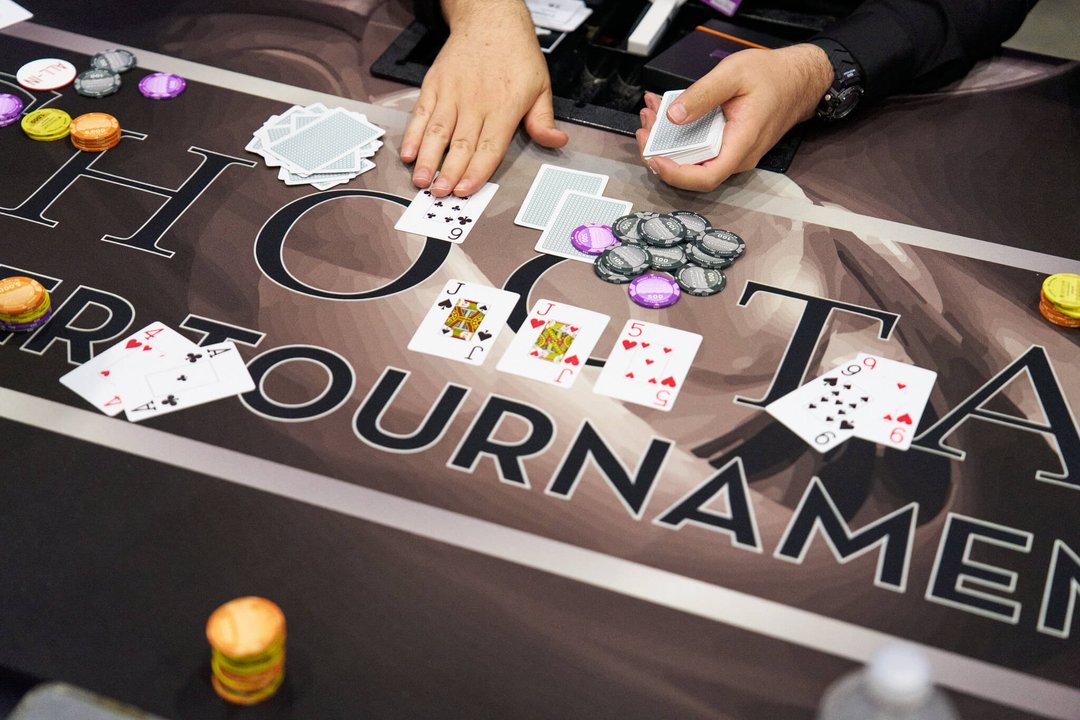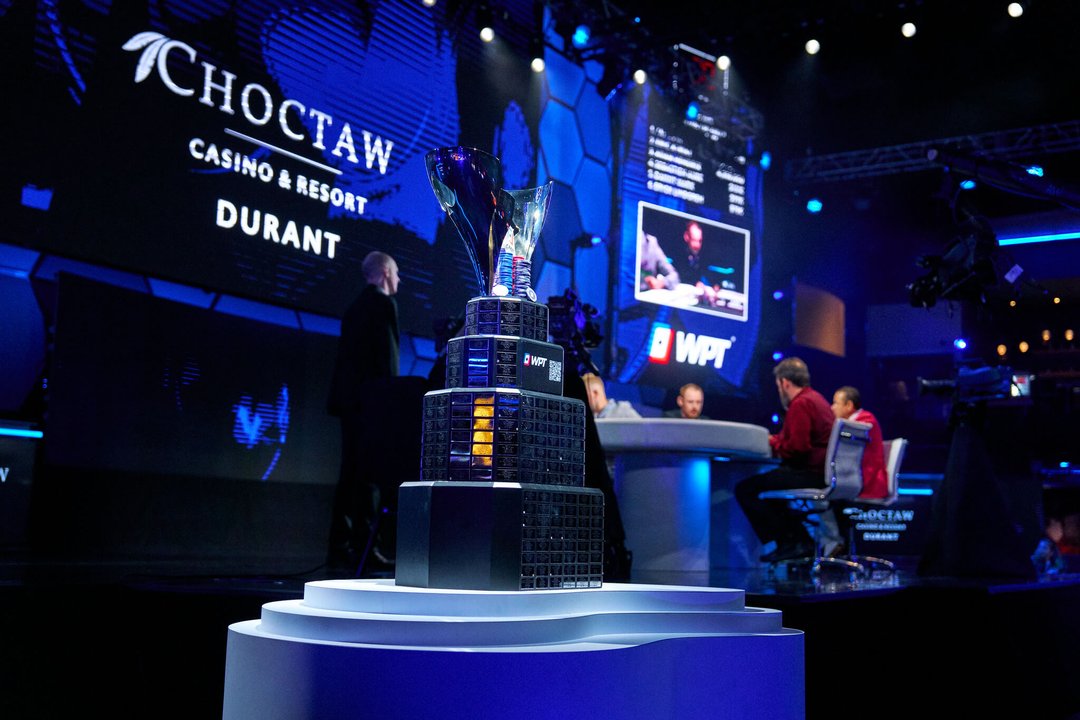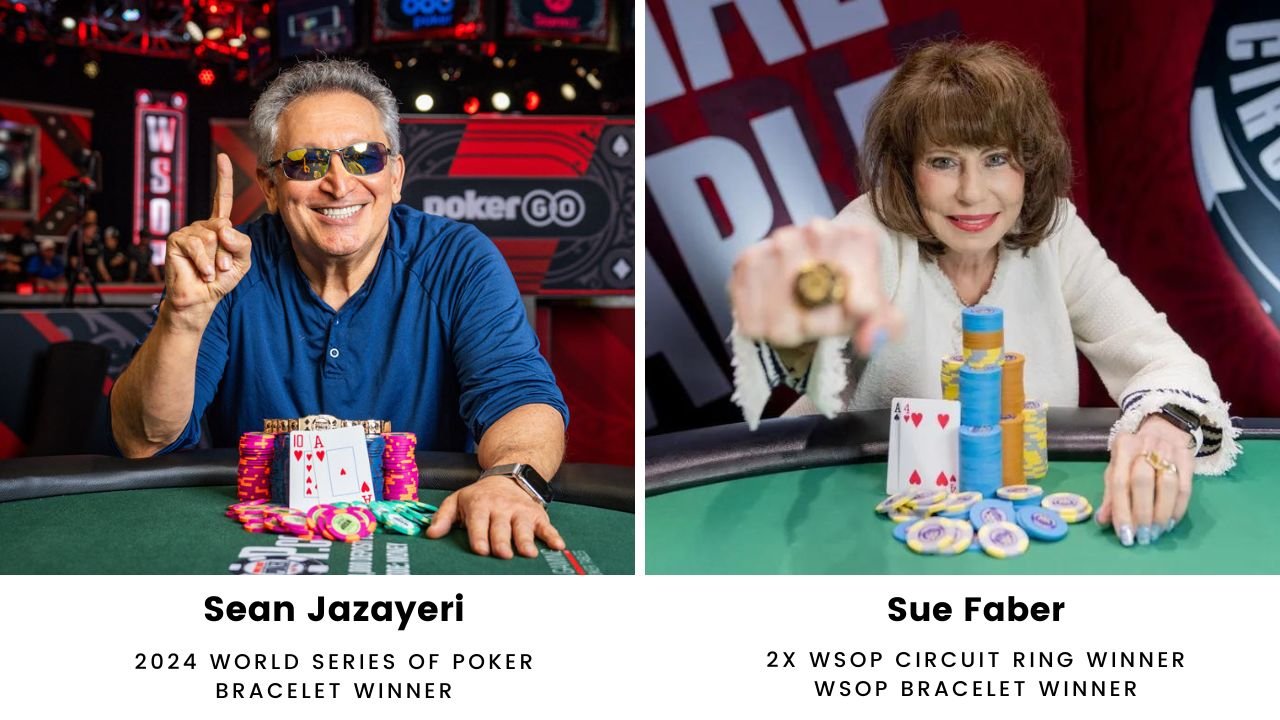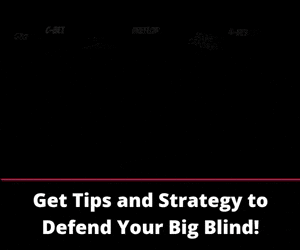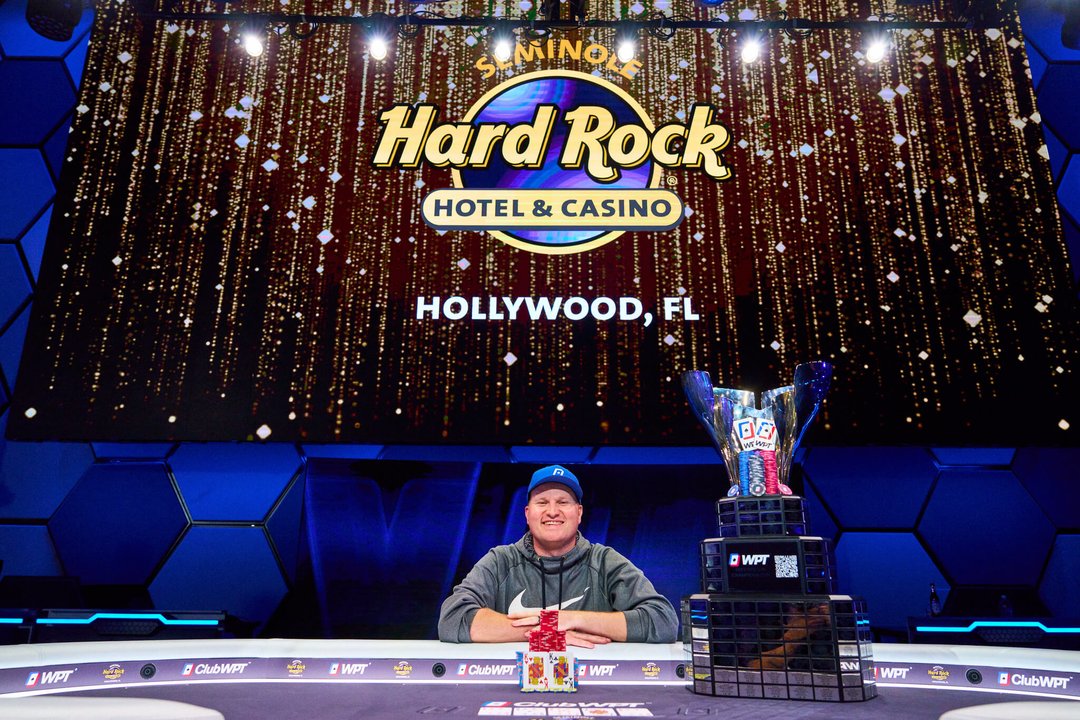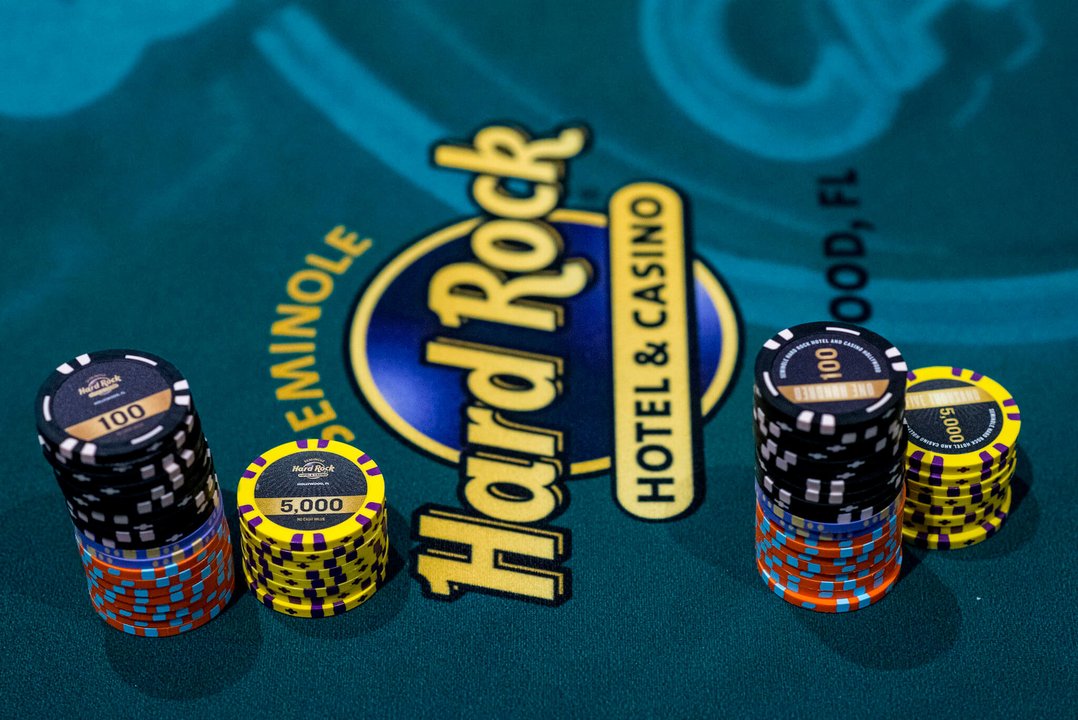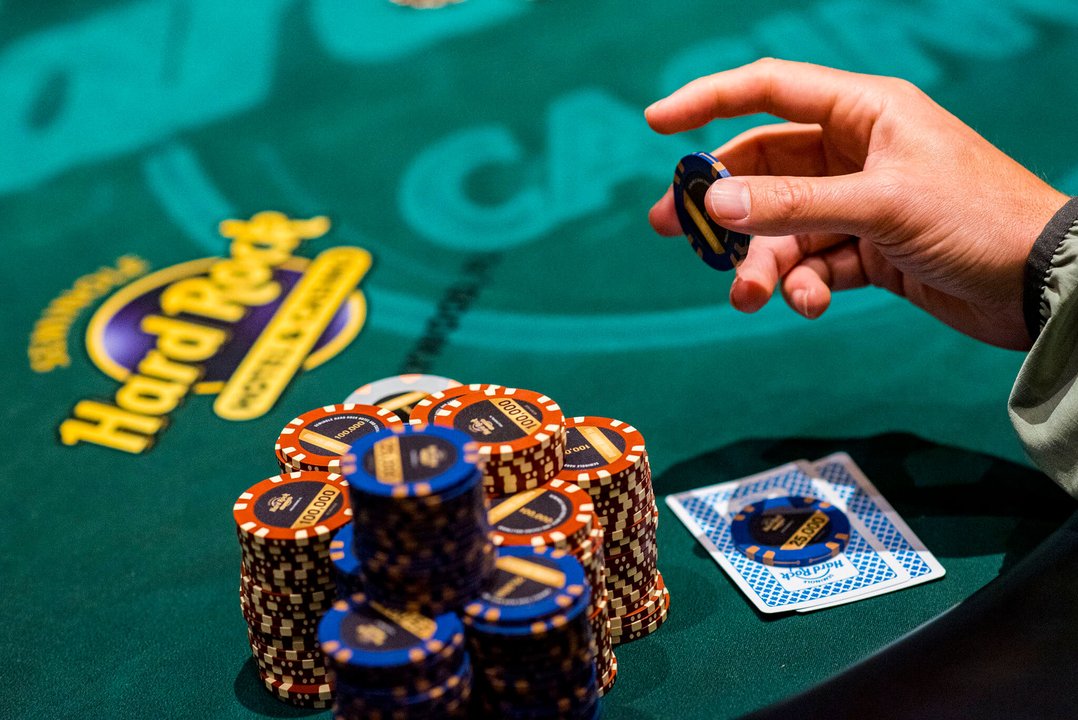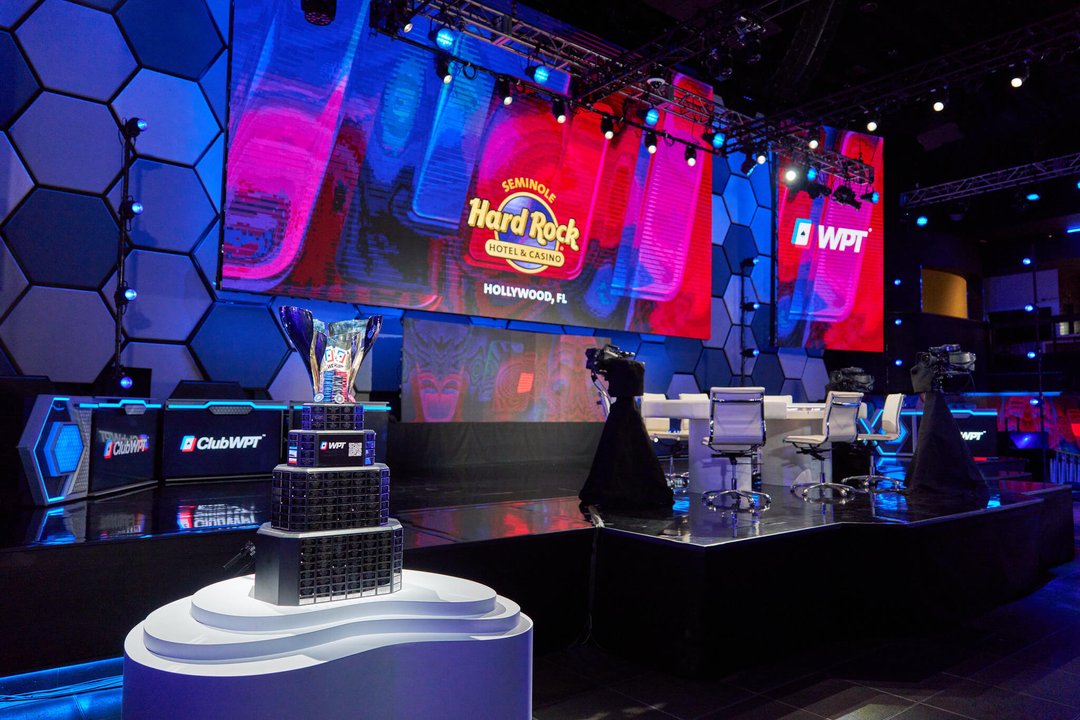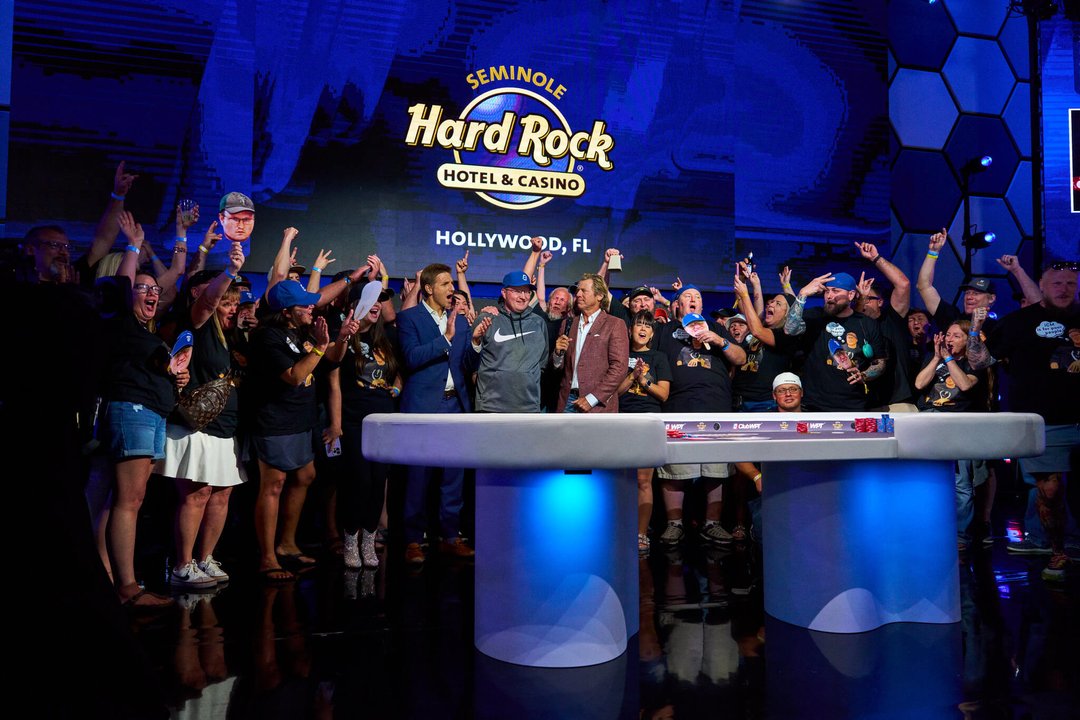LearnWPT Student Bryant Getting Results...
LearnWPT Platinum Member and Live Workshop Student Bryant Morrison has been putting in the work and seeing big results at the poker tables!
Bryant recently conquered a field of 322 players to win his first WSOP Circuit Ring in the Seniors Event at the Choctaw Durant stop.
The $250 buy-in tournament generated a $64,400 prize-pool and as victor, Bryant was awarded $13,948 and a coveted World Series of Poker gold Ring.
We asked Bryant about his recent win, how LearnWPT has helped his game, and more…
LearnWPT: Do you play many live tournaments? Why did you pick this specific event to play?
Bryant: I only play live tournaments but I practice at LearnWPT.com using the GTO trainer more and more now. I do not play cash games to speak of unless I am waiting for a tournament to start.
I chose the Choctaw event because it fit my schedule during the Christmas break. I play WSOP in the summer, again on break, and this circuit event was close enough to drive to.
LearnWPT: You’ve attended two LearnWPT Live Workshops. How would you say these live events have helped your game?
Bryant: Both workshops added to my understanding of the game on a theoretical level. I constantly refer to handouts even now as I develop a playing strategy for different situations. Being able to ask questions and listen to other player's questions greatly increased my knowledge of the game. The best time for learning at the second workshop was the laboratory work where we all played our hands openly with the instructors advising and critiquing our play. That one day is worth all the money in [my] opinion.
The greatest take away from both workshops was the fact that they made me reconsider what my game was doing. Then, after working at home to unscramble my brain, my game would improve to a better understanding of certain aspects of the game that I was repeatedly seeing at the tables.
LearnWPT: How often do you use LearnWPT.com to improve your game? What specific features do you like about the online training site?
Bryant: About 6 weeks before I go to a tournament setting I begin to use LearnWPT.com extensively, every day if possible. I am not a professional so I have to plan when I can play and that includes when I can practice as well. Right now I only play at 2 times a year: WSOP summer and any circuit events during Christmas break. I might add Spring Break this year to that schedule since there are now more WSOP circuit events planned.
I have created my own constantly updated index of all the episodes so that I can drill into any specific element of poker. Using this index I can review cbetting, 3rd bullets, stack to pot ratios, speculative calling, exceptions to these rules, and many other situations that might confuse me at the table. Having these episodes available 24/7 at my beck and call has proved tremendously useful to keeping my play sharp. If I had to learn this at the tables through actual play I would never be where I am now.
This most useful element of the website has been the addition of the GTO trainer. I did not enjoy it at first, constantly being graded down with losing points for errors, until I understood the tool’s usefulness. I am not supposed to win; I am supposed to develop a pattern of play that minimizes my losses in each different scenario.
Then, later at the tables, when I recognize the same situation, I will know the proper move based on stack size, position, stack to pot ratio, and the other factors taught at the workshops. Then it is up to me to decide whether it is the proper moment to DEVIATE from perfect play to maximize my exploitation of the situation. It is at that moment in the tournament that the training pays off: you realize your opponent is just not that good after all. Viola! The chips slide your way. Next hand please!
The GTO trainer never makes a mistake so you know you are learning the proper action EVERY TIME. Build knowledge off of that and table play becomes much more readable.
LearnWPT: Can you name a few specific skills or techniques from the LearnWPT game plan that helped you win this WSOP ring? Can you talk about how or why they helped?
Bryant: One of the basic skills reinforced at LearnWPT.com and the workshops is thinking of stack size as BBs and adjusting your play accordingly. Knowing where you are in the tournament helps make decisions so much easier. If it is time to shove all in with A2o (my winning hand) then make the play.
In my specific winning hand my opponent had 8 bbs left... I knew he had to be pushing ALL IN with wide open ranges so when I had the A and was only risking a few more bbs to end the tourney my second card was less relevant to me. A in the window and the ring was mine.
Listen to what Bryant had to say back in 2018 during his first LearnWPT Live Workshop...
I would never have thought like that before LearnWPT. My cards would have been the most important item in my equation. Instead, looking at the stack sizes, position, time, stack to pot ratio, reads, and the reward my call with a weak A was practically automatic. Move the clock back and his stack is larger proportionately so the call would be less likely but with only those few bbs left it was an opportunity I could not pass up. I doubt I would ever have thought about poker like this without training at LearnWPT.com.
LearnWPT: $13,948 for a $250 buy-in is an impressive return on investment. Do you have any plans for future tournaments? Where will we see you next?
Bryant: Future tournaments will be WSOP summer events that fit my schedule. The money is not the motivation; the competition is. $1000 buy-in at WSOP returns hundreds of thousands and the higher events, with higher skill levels, return more. The math is the same for ROI but the “life changing” amounts are not going to appear for me. I am already settled into the retirement life style, just not completely yet.
Look for me at WSOP in the summer events but hopefully you won’t recognize me and future I am just an old timer, the OMC type, who is just playing his cards as he gets them. ABC with a little luck, that’s what I want you to see when you see me. Meanwhile, back at LearnWPT.com I will have put in multiple hour days on the trainer, updated my index, reviewed and drilled certain elements, attended another workshop (probably, based on schedule), and hopefully added a few more tools to my war chest.
LearnWPT: Do you have any advice for players trying to learn and improve their No-Limit Hold’em game?
Bryant: The key to improving is to actually use the tools you have. Playing is one way but it is slow, expensive, and time consuming. The GTO trainer is on all the time and is free with unlimited use when you buy into the monthly program. You can even but in, practice, play, resign and come back later when you plan on playing your next tournament with no penalty. Thus, you can plan your own time instead of having the tournament schedules run your life. Your wife and family will appreciate your presence in the “off” seasons.
While I also suggest a workshop they are expensive and will “break your game” until you recollect your thoughts and adjust to what the new information gives you. Well worth the time and money but be prepared to have at least a week off after the workshop to work the material into your game before you play. Now I may be slow and perhaps you can adjust faster than this poor old man but you do need some time to change your game.
LearnWPT: Aside from poker, what else do you do for fun?
Bryant: Ahhh… the back-story, personal part of this interview. As a window into my life let me summarize by saying that in my long life I have not been idle. I have practiced law, taught history (still doing this one), piloted my own aircrafts with a multi-engine instrument commercial license, instructed accelerated freefall skydiving with over 1,000 jumps, scuba dived to a depth of 350 feet on a salvage attempt, sailed the Caribbean as a bareboat charter captain, raced downhill slalom (very briefly), written 6 books (4 published), traded commodities, played golf down to a 12 handicap, raised 2 children to be better than me, kept a wife 12 years younger than me happy for the past 30 years, and besides just playing poker I now find pleasure in studying and practicing the game. And I’m not done yet!
As an educator, Bryant understands the importance of study, the effort needed to improve your game, and mental fortitude to be successful in poker and life.
Bryant is a true student of the game and we couldn’t be more proud of his accomplishment. We can't wait to see what is in store next for Bryant.
Have a success you’d like to share? Let us know by emailing the LearnWPT Team at [email protected].
When we created LearnWPT.com our goal was to provide a place that empowers players to ask questions, help get them focused, and provide the tools for a solid game-plan to bring to the table every time they sit down.
Some of the ways we accomplish this is by:
- Empowering Students to train, practice, and play on the WPT GTO Trainer to get real EV loss of their play to help find leaks fast
- Hosting 2-Day and 3-Day Live Workshops for Students to learn and interact with the LearnWPT Instructors in person
- Teaching and presenting examples of proven, winning concepts through our Strategy Episodes (instructional videos)
- Providing a place where Members can send questions to receive answers and guidance with the Ask a Pro Feature and Community Forums
Not a Member? Click below to join (just $5 your first month!) and start improving your game today:






